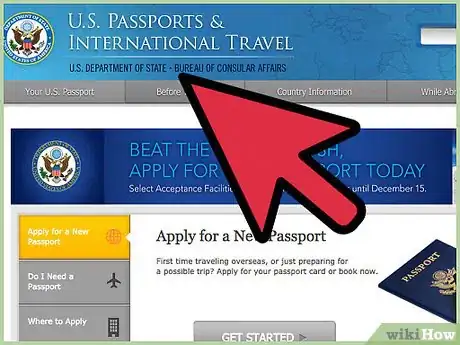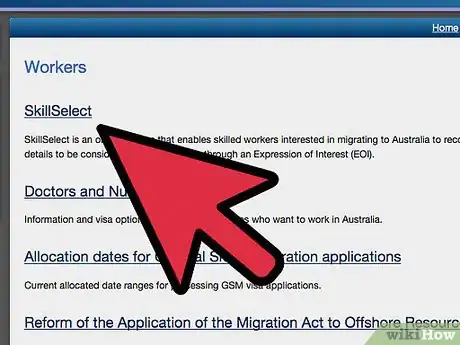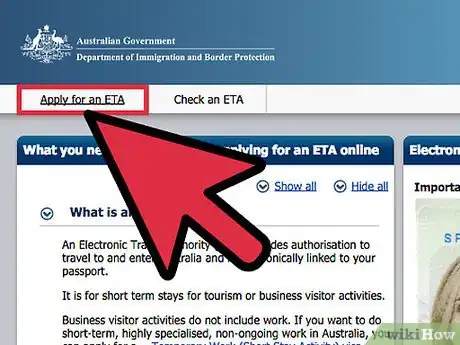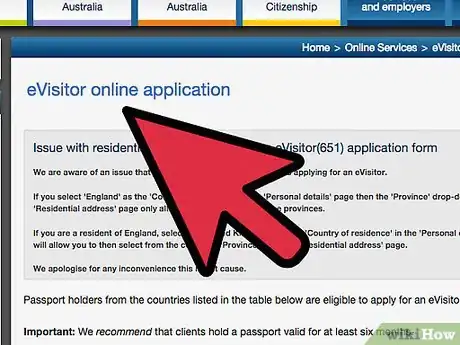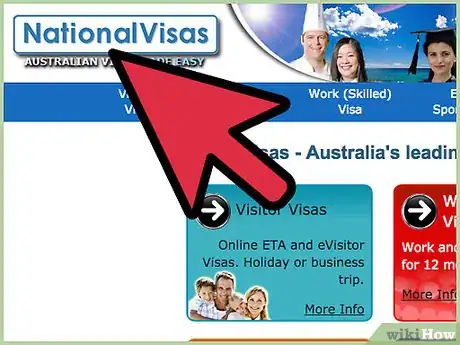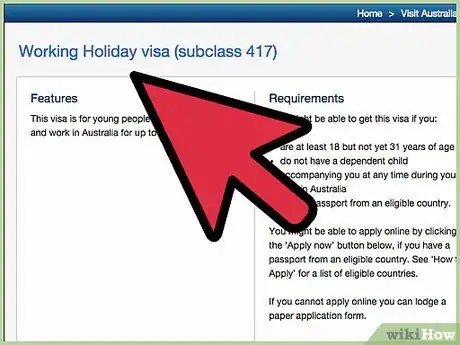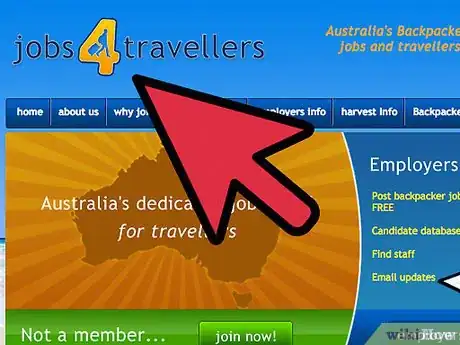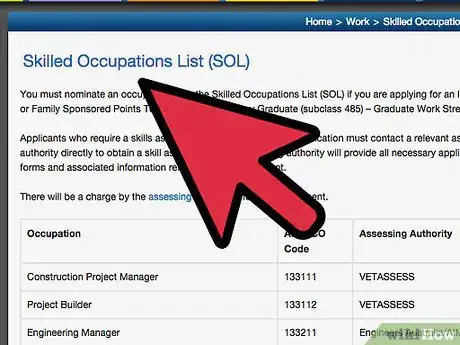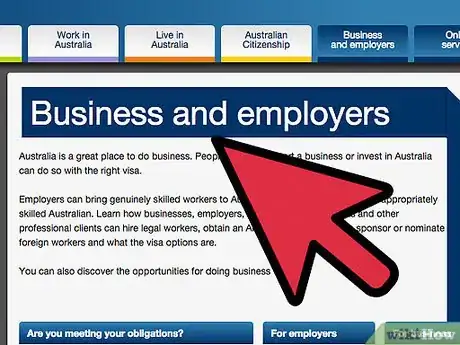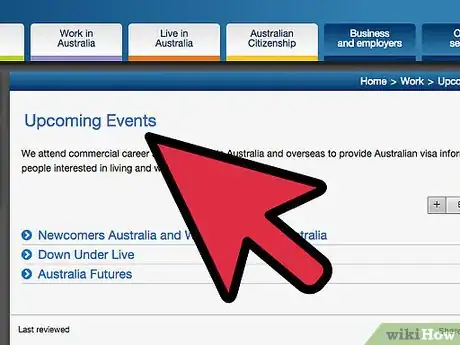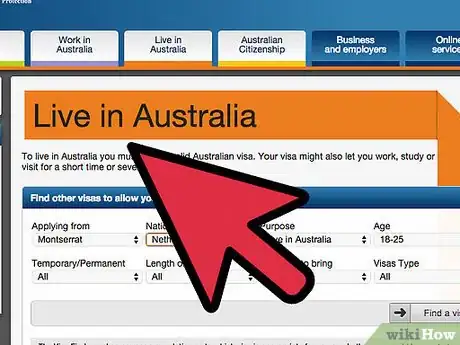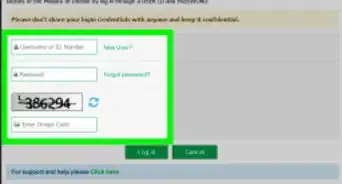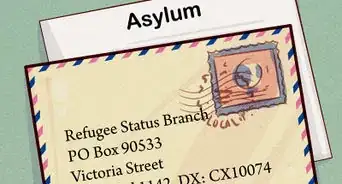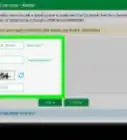This article was co-authored by Deirdre Nero. Deirdre D. Nero is an Immigration & Nationality Law Attorney and the Founder of NERO Immigration Law, P.L., based in Miami, Florida. With nearly 20 years of experience, she specializes in business-based immigration, family-based immigration, and naturalization. She earned her law degree from the University of Miami School of Law and her BA from Florida State University. In 2014, Deirdre won Business Immigration Lawyer of the Year–Florida in the Global Mobility & Immigration Awards given by Acquisition International. She’s also earned an AV Preeminent rating from Martindale-Hubbell, which annually rates lawyers on their abilities and ethics. Additionally, South Florida Legal Guide named her a Top Lawyer in South Florida several years in a row. In 2019, Deirdre was honored to receive the Outstanding Entrepreneur Award at the 2019 AXA Businesswoman of the Year Awards by the Coral Gables Chamber of Commerce and the Merrick in the Making Award by the Coral Gables Chamber of Commerce. In 2019 and 2021, Deirdre was named to Florida Trend Magazine’s Legal Elite.
There are 12 references cited in this article, which can be found at the bottom of the page.
wikiHow marks an article as reader-approved once it receives enough positive feedback. In this case, 100% of readers who voted found the article helpful, earning it our reader-approved status.
This article has been viewed 142,268 times.
Australia is a popular destination for expatriates. Many people enjoy the climate, culture and communities enough to seek temporary or permanent employment in the country. If you want to work in Australia, you will need to find an employment scheme that sponsors your work visa. There are different options available, depending upon your nationality. On your visa application, you will be awarded points based on your qualifications, which will then determine if you get a visa. This process can take anywhere from 3 months to 18 months, so you may want to get a travel visa to visit Australia in the meantime. Find out how to travel and work in Australia.
Steps
Australia Travel Options
-
1Visit your country's state department website to find out how to get a passport.[1] You should start the passport process as soon as possible, as some processes can take between 3 and 6 months to receive.
- Any website that ends in .gov is an official government website—you can trust the information on there.
-
2Visit www.immi.gov.au/skilled to view the Australian immigration rules on foreign workers. Go to www.immi.gov.au/translated-info/_pdf/rights-obligations-workers/english.pdf to see what rights immigrant workers are afforded.Advertisement
-
3Apply for an ETA visitor visa. This is required for any short-term trip to Australia, and you will be required to prove you have an ETA before getting on a plane to Australia. It is good for up to 3 months.[2]
- This visa will cost $20. You can apply at www.eta.immi.gov.au. If you currently hold another type of visa, or you are applying after an ETA is expired, you may have to appear in person at an Australian consulate to reapply.
-
4Apply for an eVisitor visa, if you want to visit Australia for travel or business and you are from an applicable European country. This is designed for travel of 3 months or less and you must apply for it outside of Australia.[3]
- Visit www.immi.gov.au/e_visa/evisitor.htm to start an eVisitor application. Charges will apply.
-
5Apply for a tourist visa if you want to extend your travel for more than 3 months. You can apply for this visa inside or outside of Australia. It can be granted for up to 12 months of travel.[4]
- Visit www.ecom.immi.gov.au/visas/app/uu?form=VSS to apply for a tourist visa. Some nationalities are not able to submit an online application. In this case, you will need to visit an Australian consulate.
-
6Apply for a working holiday visa. This visa is only available to people from certain countries who are between the ages of 18 and 30. It is designed to allow you to travel, supplement your income with work and/or study for up to 12 months.[5]
- People from a specific list of countries, including the UK and many European countries, should apply for a subclass 415 visa to gain short term employment in Australia.[6] With this visa, you can stay and work for up to 12 months, study for up to 4 months and work during this period. Visit www.immi.gov.au/visitors/working-holiday/417/how-to-apply.htm to get applications and learn how to complete them.
- People from various Asian and South American countries and the United States can apply for a subclass 462 visa.[7] The restrictions on this visa are similar to the subclass 415 visa; however, you can only work with 1 employer for a period of up to 6 months. Visit www.immi.gov.au/visitors/working-holiday/462/usa/how-to-apply.htm to download applications and learn how to apply.
Australian Work Options
-
1Find an employer to sponsor your visa.[8] If you are a skilled worker, you should begin looking for employment sponsorship 3 to 6 months in advance of your trip to Australia. There are a few different ways that you can find sponsored employment.
- Contact a recruiter in Australia to get help with finding a position. You can find recruiters through Internet searches, and you may be required to pay for their services. This is a good idea if you have a highly specialized profession that is listed on the SOL.
- Register for a free "work in Australia" online job board. These sites, such as jobs4travellers.com.au and liveinaustralia.com/home/employment_in_australia.asp ask you to sign in and allow you to look for job boards.
-
2Consult the Skilled Occupation List (SOL). If you are a professional working in 1 of the listed fields, you are much more likely to get a sponsored or independent work visa. Medical, engineering and computer professions are some of the most common items listed on this document.[9]
- Visit www.immi.gov.au/skilled/_pdf/sol-schedule1.pdf to read the most up to date SOL.
- Do research on international companies that have bases in Australia. Applying for work in 1 of these companies may allow you to go through training in Australia or work in an Australian office.
- Search for applicable jobs in large Australian companies. Very large companies are more likely to hire international employees because they can afford the visa costs. Keep in contact with all of these companies and search often for new jobs.
-
3Apply for a business visa. There are several types of business visas, usually available to people who are entrepreneurs or investors and seek to enhance the Australia economy.[10] You can also seek a visa to train or conduct business for a short period of time.
- If you are planning a business visit, you will need to apply for an ETA or eVisitor visitor visa before being granted a subclass 956, 977 of 651 visa. Visit www.immi.gov.au/skilled/business/business-visit-visa-options.htm to find out how to apply.
- You will need to apply for a short stay business visa if you are not eligible for an ETA or eVisitor via. Visit the link above to apply for a subclass 456 visa.[11]
-
4Attend a "Skills Australia Needs" event. The Australian government seeks out individuals with specialized skills, such as those listed on the SOL. Travel to 1 of these events to look for employment. You may need to travel to England or another country to attend this recruitment fair.
- Visit www.immi.gov.au/skillevents/upcoming-events.htm to view a list of these events.
-
5Seek permanent residency with a skilled independent visa. This visa is only available to people under 50 with English proficiency who are able to prove that they offer a skill that is in demand in Australia. People in the medical field are especially sought for this type of visa, which can take up to 18 months to receive.[12]
Community Q&A
-
QuestionHow do I search for a job in Australia?
 Sami97Community AnswerOften times there are flyers from the different job positions on the blackboard in your hostel. If there are none, you can always just ask around - in Australia, many people rely on the backpackers for their work force, so you will always find something. If you want to, you can also apply online before traveling to Australia to make sure that you have a job by the time you arrive. A popular job is berry or fruit picking, as many farmers offer free meals and accommodation in exchange for your help.
Sami97Community AnswerOften times there are flyers from the different job positions on the blackboard in your hostel. If there are none, you can always just ask around - in Australia, many people rely on the backpackers for their work force, so you will always find something. If you want to, you can also apply online before traveling to Australia to make sure that you have a job by the time you arrive. A popular job is berry or fruit picking, as many farmers offer free meals and accommodation in exchange for your help. -
QuestionWhat is the IELTS exam?
 Community AnswerIELTS, the International English Language Testing System, is designed to assess the language ability of candidates who need to study or work where English is used as the language of communication. IELTS is required for entry to university in the UK and other countries.
Community AnswerIELTS, the International English Language Testing System, is designed to assess the language ability of candidates who need to study or work where English is used as the language of communication. IELTS is required for entry to university in the UK and other countries. -
QuestionHow do I get a job with a travel company in Australia?
 Community AnswerLike any other job, you can look for postings from travel companies online and apply for them that way. You could also try calling travel companies around Australia to ask whether or not they're hiring.
Community AnswerLike any other job, you can look for postings from travel companies online and apply for them that way. You could also try calling travel companies around Australia to ask whether or not they're hiring.
Things You'll Need
- Valid passport
- ETA visa
- eVisitor visa
- Application fees
- "Skills Australia Needs" recruitment event
- Skilled Occupation List
- Recruiter
- Business visa
- Employer sponsored visa
- Skilled independent visa
Expert Interview

Thanks for reading our article! If you'd like to learn more about working abroad, check out our in-depth interview with Deirdre Nero.
References
- ↑ https://travel.state.gov/content/travel/en/passports/apply-renew-passport/how-to-apply.html
- ↑ https://immi.homeaffairs.gov.au/visas/getting-a-visa/visa-listing/electronic-travel-authority-601
- ↑ https://immi.homeaffairs.gov.au/visas/getting-a-visa/visa-listing/evisitor-651
- ↑ https://immi.homeaffairs.gov.au/visas/getting-a-visa/visa-listing/visitor-600
- ↑ https://immi.homeaffairs.gov.au/visas/getting-a-visa/visa-listing/work-holiday-417
- ↑ https://immi.homeaffairs.gov.au/visas/getting-a-visa/visa-listing/repealed-visas/foreign-government-agency-visa-subclass-415
- ↑ https://immi.homeaffairs.gov.au/visas/getting-a-visa/visa-listing/work-holiday-462
- ↑ https://immi.homeaffairs.gov.au/visas/employing-and-sponsoring-someone/sponsoring-workers/learn-about-sponsoring
- ↑ https://immi.homeaffairs.gov.au/visas/working-in-australia/skill-occupation-list
About This Article
If you want travel and work in Australia, apply for a working holiday visa, which allows you to travel and supplement your income with work for up to 12 months. Next, find an employer to sponsor your visa by contacting an Australia recruiter, or register for a free online job board. If you’re a professional working in a field such as medicine, engineering and computers, consult the skilled occupation list (SOL). Search for jobs in large companies, since they can afford the visa costs. For more information on traveling and working in Australia, including visa options for visits shorter than 12 months, keep reading.
